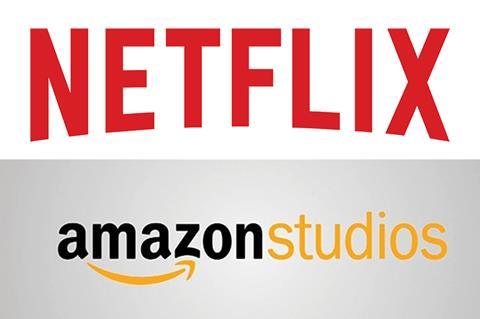
The Swiss film industry could receive a cash boost of an estimated additional $6.9m (CHF 6.5m) per year as part of proposed revisions to its film law that will require online platforms such as Netflix and Amazon to invest 4% of their annual turnover in local production.
Speaking at this week’s Locarno Film Festival, Isabelle Chassot, head of the Federal Office of Culture, announced that this would amount to an additional 10% financing for independent Swiss production on top of the existing $61m (CHF 60m) made available for the local industry each year by the national and regional film bodies and Swiss public broadcaster SSR.
She explained that the figure of $6.9m was based on an estimated combined overall turnover of $168m (CHF 164m) by VoD and streaming services in Switzerland.
“The investment [by the streaming services] could be in the form of acquisition of rights, commissioned productions or co-financing productions. This is an obligation to invest, not a compulsory levy as imposed in Germany, for example. The streaming services are free in their decision as to where they make the investment.”
The draft law is part of the Kulturbotschaft 2021-2024 consultation process which covers all aspects of cultural activities in Switzerland.
This move by the Swiss national authorities is, on the one hand, aimed to create a level playing field between the linear and non-linear services and between foreign and national Swiss providers.
At the same time, although Switzerland is not a member of the European Union, these proposed changes to the film law also reflect last year’s revision of the Audiovisual Media Service Directive (AVMSD) requiring online platforms to make financial contributions for the production of European works.
To date, France, Germany, Italy, Denmark and the Flemish Community of Belgium are the member states who have developed specific investment obligations for non- domestic providers of on-demand audiovisual media services to European film and TV production.
The film levy collected from VOD services in Germany is worth 1.8% of the first €20m of annual revenue generated in Germany and 2.5% of annual revenue above €20m. While Amazon had already been paying into the German Federal Film Board (FFA), Netflix had been disputing the legality of such a levy until its suit was dismissed as inadmissible by the European Court of Justice last summer. In February, during the Berlinale, Netflix announced that it would start paying the film levy to the FFA from September 2019.
Similarly, the Swiss authorities are looking to follow the lead of the revised AVMSD ruling and require online platforms to ensure that at least 30% of their film catalogues are made up of European content.
Creative Europe MEDIA
Meanwhile, Federal Councillor Alain Berset, head of the Federal Department of Home Affairs and responsible for cultural and media policy, indicated that Switzerland would be looking to rejoin the EU’s Creative Europe MEDIA sub-programme when the new programme begins in 2021.
The past five years has seen the Swiss film industry unable to benefit from the current MEDIA Programme’s initiatives, after a vote by the Swiss people in February 2014 in favour of new immigration curbs prevented Switzerland from completing negotiations which were underway at the time.
The Swiss government provided so-called compensatory measures since then with financing for the project development, distribution support and training initiatives. In 2018, $4.23m (CHF 4.13m) was provided for the various activities, but the Swiss film professionals have sorely missed the opportunities to network with their EU counterparts at the MEDIA-backed programmes over the last five years.

























No comments yet